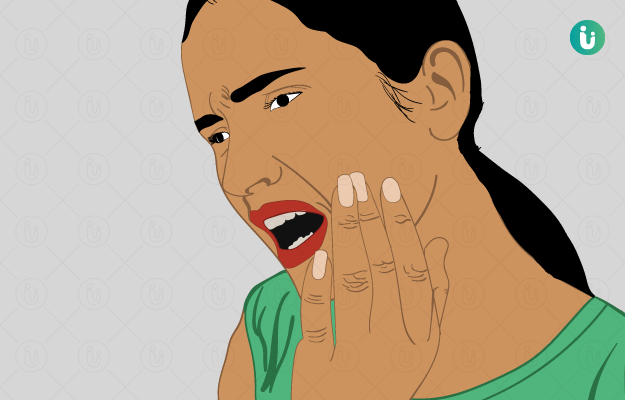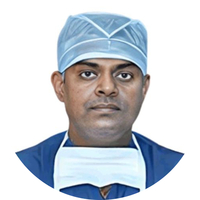What is Jaw Pain?
Pain in and around the temporomandibular joint, either on one or both sides of the jaw, is referred to as jaw pain. It can be acute or chronic.
What are its main associated signs and symptoms?
Symptoms typically associated with jaw pain include:
- Headache
- Jaw tenderness
- Pain on biting or while opening mouth
- Pain in or around the ear or the temple
- Movement of jaw causes noises such as clicking, popping or grinding
- Locking of jaws while opening the mouth
- It can very rarely result in facial pain
- In case of heart-related conditions, pain radiating from the chest to the jaw along with pain in the neck, back, arms, or stomach accompanied by nausea, shortness of breath, lightheadedness, or cold sweat
What are its main causes?
The most common causes of jaw pain include
- Injury
- Infections
- Toothache or tooth grinding
- Sinus-related problems
- Diseases of the periodontal ligament
- Conditions such as arthritis
- Issues with the temporomandibular joint or other jaw-related problems
- Heart-related conditions such as heart attack
How is it diagnosed and treated?
The physician will take a complete history of the symptoms to diagnose jaw pain and determine the cause. Following tests might be advised for the same:
- For diagnosing arthritis, immunological blood tests, urine test, biopsies (muscle, kidney, and skin), and joint fluid tests (joint aspiration or pain relief) are conducted.
- Electrocardiogram (ECG), echocardiography (2D-Echo), and angiography are ordered for assessing cardiac issues.
- X-rays of the temporomandibular joint (TMJ disorders), chest X-rays (heart disorders), and single tooth or full mouth x-rays (single tooth or periodontal problems) are ordered to diagnose the corresponding mentioned diseases.
- Computed tomography (CT scan), magnetic resonance imaging (MRI), and scintigraphy (bone scan) are ordered in cases involving the temporomandibular joints.
After detecting the cause of the jaw pain, it will be treated as follows:
- Exercises to relieve joint pain
- Antibiotics- if an infection is the source of pain
- Anti-inflammatory drugs to relieve pain due to inflammation
- Muscle relaxants to relieve spasms
- Root canal therapy or extraction if a decayed tooth is the cause of pain
- Mouth protector- in case of temporomandibular joint dysfunction
- Periodontal treatment in case of periodontal issues (Read more: Periodontitis treatment)
- Cardiac treatment- when heart-related conditions cause pain

 Doctors for Jaw Pain
Doctors for Jaw Pain  OTC Medicines for Jaw Pain
OTC Medicines for Jaw Pain
 Jaw Pain articles
Jaw Pain articles

 Home Remedies for Jaw Pain
Home Remedies for Jaw Pain







 Editorial Team
Editorial Team











